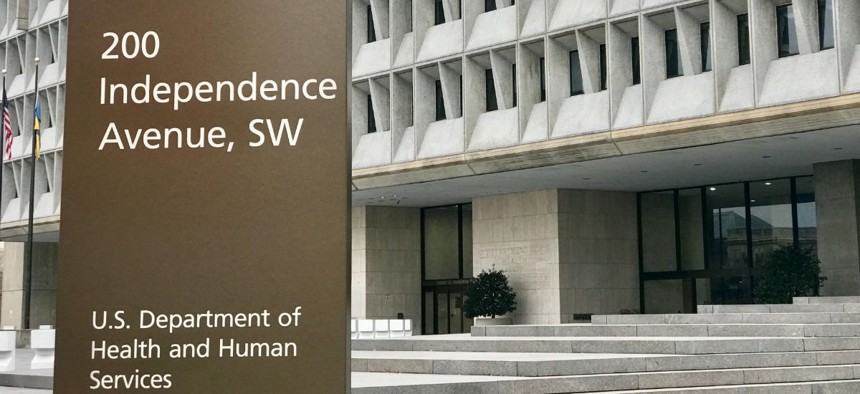
By Jer123 / Shutterstock.com
Union Vows to Fight HHS Effort to Implement Partial Contract, Including Telework Cuts
Officials at the National Treasury Employees Union argue the department cannot legally implement new provisions until the entire contract is ratified.
The Health and Human Services Department is preparing to implement a partial collective bargaining agreement with a federal employee union later this week, setting the stage for a legal battle between labor and management.
On April 1, the Federal Service Impasses Panel, an independent agency tasked with settling contract disputes between unions and agency leadership, issued its decision on a variety of provisions of the proposed contract between HHS and the National Treasury Employees Union, mostly siding with management. The decision gutted telework and made it significantly harder for employees to take time off around the holidays, although it stopped a management effort to effectively end the use of official time by union employees.
In an April 19 letter to NTEU leadership, HHS Deputy Assistant Secretary for Health David Mansdoerfer announced that the department planned to begin implementation of the FSIP decision on May 2.
“As the FSIP order . . . provides no implementation instructions [according to a 2016 FSIP edict on ground rules for negotiations] a reasonable person would expect the order was immediate,” Mansdoerfer wrote.
NTEU officials said that statement is inaccurate, and the union announced Monday that it plans to file a grievance if HHS moves forward with its implementation plans, the fifth such action since negotiations began last year.
“We tried to negotiate a contract with HHS but their proposals were so retrograde that it was difficult to make progress,” NTEU National President Tony Reardon said. “At one point, the HHS bargaining team refused to even be in the same room with their own employees . . . Secretary Alex Azar and his negotiating team intentionally sabotaged bargaining in order to get to the administration-friendly FSIP, and NTEU intends to fight the premature implementation of FSIP’s decision.”
At the heart of the disagreement is the fact that the impasses panel declined to assert jurisdiction over a number of still outstanding provisions of the contract, and instructed the union and HHS to return to the bargaining table. FSIP Executive Director Kimberly Moseley did not comment on this particular case, but said that generally speaking, implementation of an impasses panel decision is governed by the ground rules established at the outset of negotiations.
“Whatever the ground rules say about how we treat provisions that are agreed to, that’s how they get treated,” Moseley said. “If ground rules have specific provisions about how to do that sort of thing, then that’s a grievance.”
NTEU officials have argued that the ground rules governing negotiations with HHS, as laid out by the impasses panel in a separate decision in 2016, have no bearing, as both the union and management have objected to them in the intervening years. Instead, the union argued that both parties must look to the existing collective bargaining agreement, last revised in 2014, to determine how new provisions of the contract are implemented.
Both the ground rules and the previous union contract suggest that the department must wait until all outstanding negotiations are completed before beginning implementation of a new contract.
“Implementation will follow ratification by NTEU according to its by-laws and the approval of the agreement by the agency,” the impasses panel wrote in 2016. “Ratification will occur within 60 days of the date the final agreement is reached . . . The parties will execute the agreement within three workdays of the union’s notice of ratification.”
The existing union contract also stresses that it will continue “in full force and effect until a successor agreement is in place.”
In a statement to Government Executive, HHS did not address NTEU’s contention that its effort to implement a partial contract is counter to the 2014 contract and the 2016 ground rules.
“As ordered by the Federal Service Impasses Panel, HHS will begin implementation of its new contract with NTEU,” the department wrote. “HHS will be providing internal guidance on the implementation as the implementation process moves along. It is HHS’s expectation that the changes in the contract will increase the operational efficiency and effectiveness of the department.”







